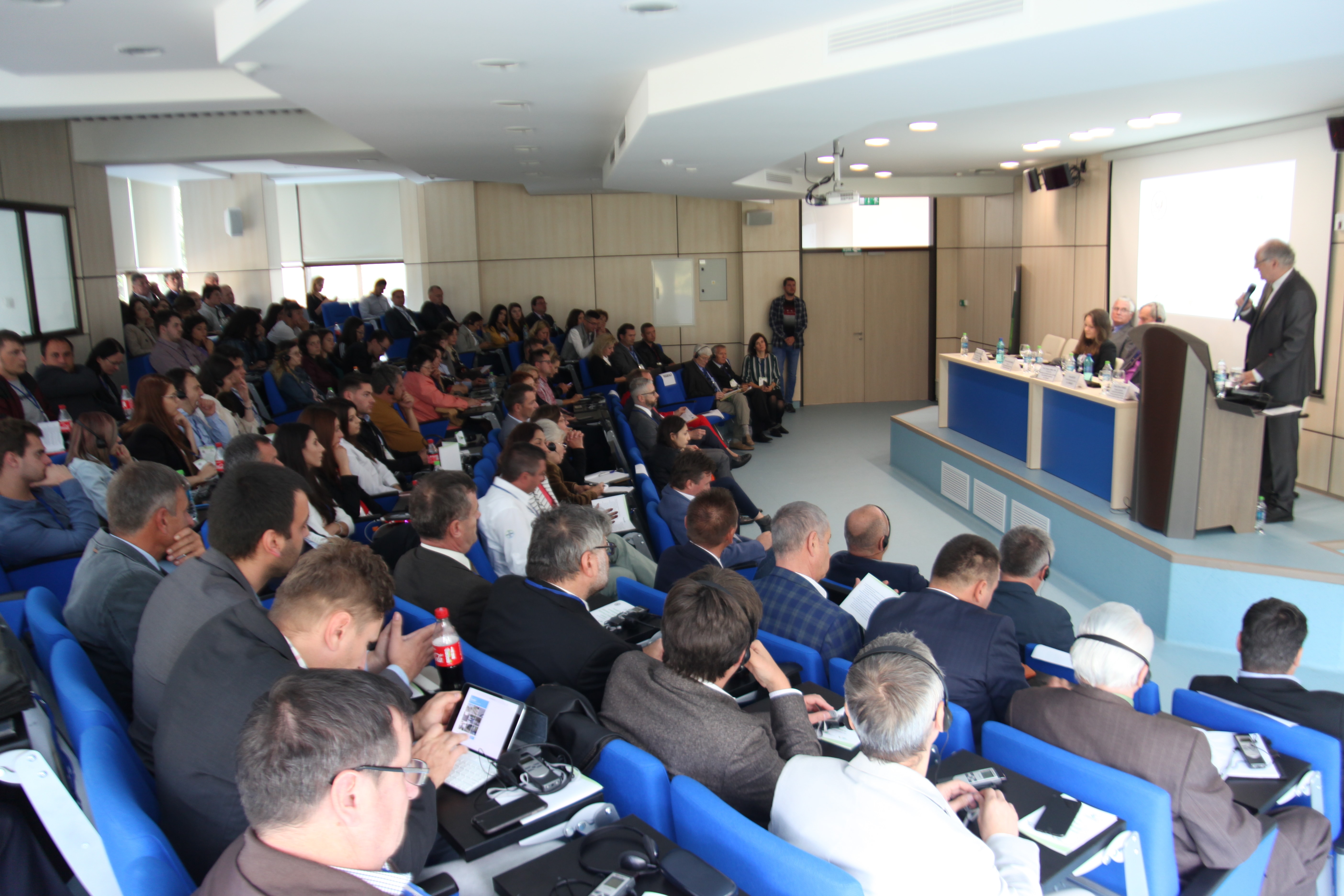Three agricultural industry organizations (AgroBiotechRom, the Seed Industry Alliance and the Maize Growers Association) joined efforts with the US Embassy in Bucharest and the Agricultural University of Iasi to put Romania again in 2019 on the innovation map of the Continent during the European Week of Biotechnologies.
- On September 25, at the roundtable “Innovations in Plant Breeding – Recent Developments and Future Paths”, Professor Julian Adams (Department of Molecular, Cellular and Developmental Biology, University of Michigan) talked about economic, social and environmental benefits of new breeding and selection techniques. He underlined the importance of understanding that new technologies, such as CRISPR, are particularly precise and completely different from the techniques used in genetics a decade ago, when Europe adopted the regulations that now govern GMOs. “These regulations are outdated and are not applicable to products obtained with new technologies,” he said.
- Martina Helminger, researcher at the Vienna Institute for Chemistry and Technology and former student of Wageningen University is one of those who started a large-scale citizen initiative in the European Union: “Growing scientific progress – Agriculture matter”. She talked about the aim of the effort made by young scientists hoping to determine the European Commission to adopt a decision that gives more importance to science in the development of agriculture, including by allowing the use of plants obtained through new genome editing techniques. To be validated, this initiative requires one million signatures of citizens from at least six EU countries. Signatures must be collected by the fall of 2020.
- On September 26, at Iasi AgUniversity, two new lecturers joined the group: Mrs. Anne-Claire Vial, president of the French Research Institute Arvalis, and Mr. Cristian Ichim, a Romanian researcher involved in several European projects related to co-existence and impacts of GM crops over biodiversity. The former spoke about French farmers’ expectations related to new technologies, especially plant breeding, but also about the limitations imposed by the current European legislation. The latter explained passionately the experience of the Romanian farmers in the field of using modern biotechnologies and the outcomes of his research work, underlining that legislators should remove quickly the obstacles to progress.
- The avalanche of questions, remarks, discussions between the lecturers and the audience (researchers, farmers, students, masters and doctoral students of USAMV Iași, journalists and local authorities) were tactfully moderated Prof. Dr. Doru Pamfil, member of the Romanian Academy.


During the same week, AgroBiotechRom (the Romanian association of biotechnologies) celebrated its first decade of activity dedicated to promoting science in agriculture and educating wide audiences to value facts when it comes to food.